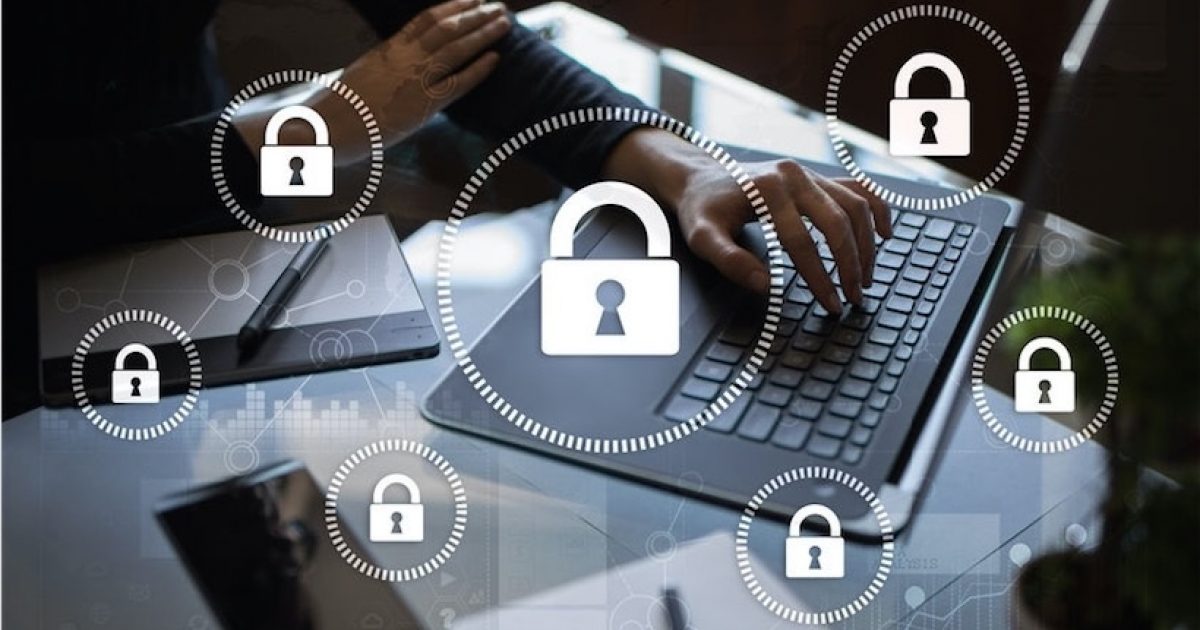In today’s digital landscape, where online interactions are integral to both personal and business operations, website security is more crucial than ever. With cyber threats on the rise, ensuring that your website is secure not only protects your business but also builds trust with your users. This blog will explore the importance of website security and outline the steps you can take to safeguard your online presence.

Online network security concept with digital lock and media content icons
Table of Contents
Toggle1. Protecting Sensitive Data
One of the primary reasons website security is essential is to protect sensitive data. Whether you run an e-commerce site, a blog, or a corporate website, you likely collect and store personal information from users, such as:
- Names
- Email addresses
- Payment information
- Login credentials
A data breach can expose this sensitive information, leading to identity theft, financial loss, and legal repercussions. Implementing strong security measures helps ensure that this data remains confidential and secure.
2. Maintaining Customer Trust
In an era where consumers are increasingly aware of cybersecurity threats, trust is paramount. A secure website fosters confidence among users, encouraging them to engage with your brand. If customers perceive your site as insecure—due to visible security warnings or past incidents—they are less likely to share their information or make purchases.
To maintain customer trust:
- Display security badges and SSL certificates on your site.
- Communicate your commitment to data protection and privacy.
3. Preventing Financial Loss
Cyberattacks can lead to significant financial losses for businesses. The cost of a data breach can be staggering, including:
- Direct financial theft
- Loss of revenue due to downtime
- Legal fees and fines
- Damage to reputation and customer trust
Investing in robust website security measures is a proactive way to prevent these potential losses and protect your bottom line.
4. Avoiding Legal Repercussions
In many regions, data protection laws require businesses to safeguard user data. Failure to comply can result in severe legal consequences, including fines and lawsuits. By prioritizing website security, you not only protect your users but also mitigate the risk of legal issues that could arise from data breaches or non-compliance.
5. Enhancing SEO Rankings
Search engines like Google prioritize secure websites in their rankings. Websites that use HTTPS encryption are more likely to rank higher in search results compared to those that do not. This means that investing in website security can positively impact your search engine optimization (SEO) efforts, leading to increased visibility and traffic.
6. Safeguarding Against Attacks
Websites are susceptible to various types of cyberattacks, including:
- Malware Attacks: Malicious software can infect your site, stealing data or compromising functionality.
- DDoS Attacks: Distributed Denial of Service attacks can overwhelm your server, causing downtime and loss of access for users.
- SQL Injection: Attackers can manipulate your database through input fields, gaining unauthorized access to sensitive data.
Implementing robust security measures helps protect your website from these threats and ensures its ongoing availability.
7. Ensuring Business Continuity
Website security is essential for maintaining business continuity. Cyberattacks can lead to extended downtime, disrupting operations and affecting customer service. By prioritizing security measures, businesses can minimize the risk of disruptions and ensure a seamless experience for users.
8. Establishing a Security Culture
Emphasizing website security helps foster a culture of security within your organization. Employees become more aware of potential threats and best practices for protecting sensitive information, which can significantly reduce the risk of human error leading to security breaches.
How to Improve Website Security
To enhance your website security, consider implementing the following measures:
- Use HTTPS: Ensure your website uses HTTPS encryption to protect data transmitted between the server and users.
- Regularly Update Software: Keep all software, plugins, and themes up to date to patch known vulnerabilities.
- Employ Strong Passwords: Use strong, unique passwords for all accounts associated with your website and encourage users to do the same.
- Implement Two-Factor Authentication (2FA): Add an extra layer of security by requiring users to verify their identity through a second method.
- Regular Backups: Perform regular backups of your website to ensure you can recover quickly in case of an attack.
- Monitor for Threats: Use security tools to monitor your website for vulnerabilities and potential threats actively.
Conclusion
Website security is no longer optional; it is a necessity for any business operating online. By protecting sensitive data, maintaining customer trust, avoiding financial losses, and ensuring compliance with legal requirements, you can safeguard your brand and users. Investing in website security measures not only protects your online presence but also fosters a culture of security that benefits your entire organization. Prioritize website security today to ensure a safe and secure online environment for you and your users.


No responses yet